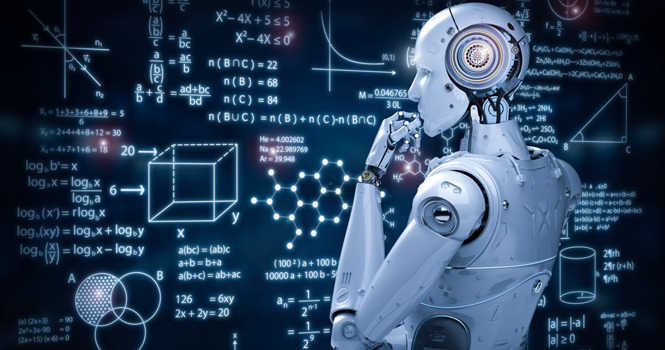Experts Calling for Attention to "Artificial Intelligence"
- Publish date :
Monday - am 12:00 | 2022-11-14
Alanbatnews -
Al-Anbat-Shatha Hatamleh
Translated by: MAYS ALSHAWABKEH
The Jordanian Artificial Intelligence Strategy and Executive Plan, recently released by the Ministry of Digital Economy, aims to incorporate the general subjects, applications, and fundamental skills necessary in school and university curricula, community colleges, and vocational training programs.
This plan was in line with current technology advancements, and it is critical to systematically incorporate artificial intelligence into the classroom.
Dr. Mohamed Alwedian, head of automated systems at Balqa Applied University, told Al-Anbat that if we want to establish educational curriculum and procedures in schools, universities, and community colleges, we must now incorporate issues and applications connected to artificial intelligence. The goal is to improve educational processes, make the most of the equipment, and use it to the teachers' benefit as they create cutting-edge teaching strategies and utilize its vast potential.
He emphasized that artificial intelligence can play a significant role in education if properly implemented, particularly if the process of introducing this cutting-edge and revolutionary science is taken into account and graded. For example, the introduction of robots, virtual reality, and augmented reality technologies can provide students with an unforgettable experience and a fair distribution of learning opportunities.
Alwedian discussed the obstacles preventing the integration of artificial intelligence into education, including funding, technical and professional capabilities, experts, and professionals as well as the psychological readiness, training, and qualification of teachers; because it may encounter some resistance from teachers.
Mahmoud Darwish, an educational expert, added that because children are not interested in computer science, he questioned how artificial intelligence can be incorporated into school curricula. Artificial intelligence is defined as the superior ability to connect and analyze data over recognizing its functions.
He suggested that an artificial intelligence component be added to the curriculum for schools, pointing out that this science is still only theoretically taught in universities and is not subject to real-world application. He also suggested that there be a specialty in information management that deals with artificial intelligence, cybersecurity, and other cutting-edge computer disciplines.
In a similar vein, media spokesman Ahmed Awwad noted that the world is currently experiencing a digitization era based on cutting-edge technological skills, emphasizing the need to stay current with these developments in order to ensure that the professional programs offered are compatible with the modern technology and skills required in the domestic and international labor markets, particularly related to the fourth industrial revolution and the skills of the green growth economy.
The purpose of incorporating AI into vocational training programs is to keep up with the advancement of technology on a global scale, offer realistic simulations during practical reality training, emphasizing that doing so increases its effectiveness and maximizes the benefit to trainees, maintain time and effort and lower cost, and help ensure the quality of training.
He outlined how the Vocational Training Foundation has integrated many contemporary technologies into its programs, including 3D printing, virtual reality training for hybrid vehicle maintenance, and welding specialties, and he noted that the organization is still researching how this experience will develop in the future. This suggests that artificial intelligence will play a significant role in all fields of study, employment, and daily life.
In a follow-up, educational expert Ahmed Wahdan described how AI is a term that encompasses all applications that carry out specific tasks as well as systems and gadgets that imitate human intelligence to carry out tasks and can improve themselves based on the data it gathers to see how crucial it is to integrate these applications and the abilities AI requires in education.
A useful commercial asset that does not replace people, he continued, AI is about the capacity to super-think and analyze data. Its goal is to considerably increase human contributions and capabilities.
AI seeks to offer cost-effective high performance computing. The proliferation of AI algorithms has contributed to the availability of a competitive environment, risk reduction, and expedited market access in addition to providing a vast amount of data necessary to generate the appropriate predictions.
Inductive analysis is a complementary tool to the theoretical approach for recognizing the function of AI in developing the educational process in diverse disciplines, he continued, and AI has numerous models, systems, and programs in developing the educational process.
AI-enabled solutions give all students access to education at any time and from any location, emphasizing that each student learns at their own pace and is accessible throughout the entire year. Without waiting for an instructor, students should experiment with what works for them.
High-quality education might be accessed by students from all around the world without paying travel or living costs. In order to establish a long-lasting and encouraging environment for AI in education, AI improved instructors' educational and professional development chances by enhancing their individual AI capabilities and teaching students at the primary, secondary, and tertiary levels.

